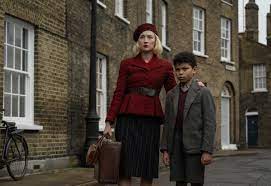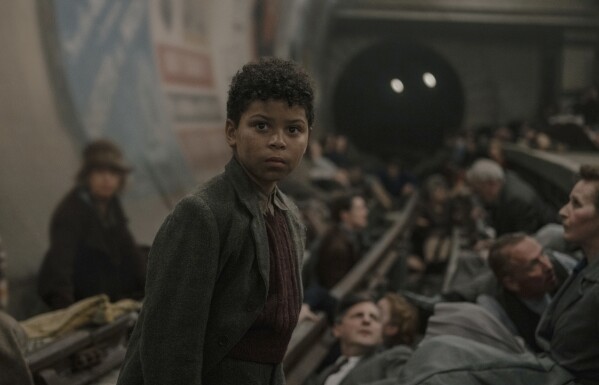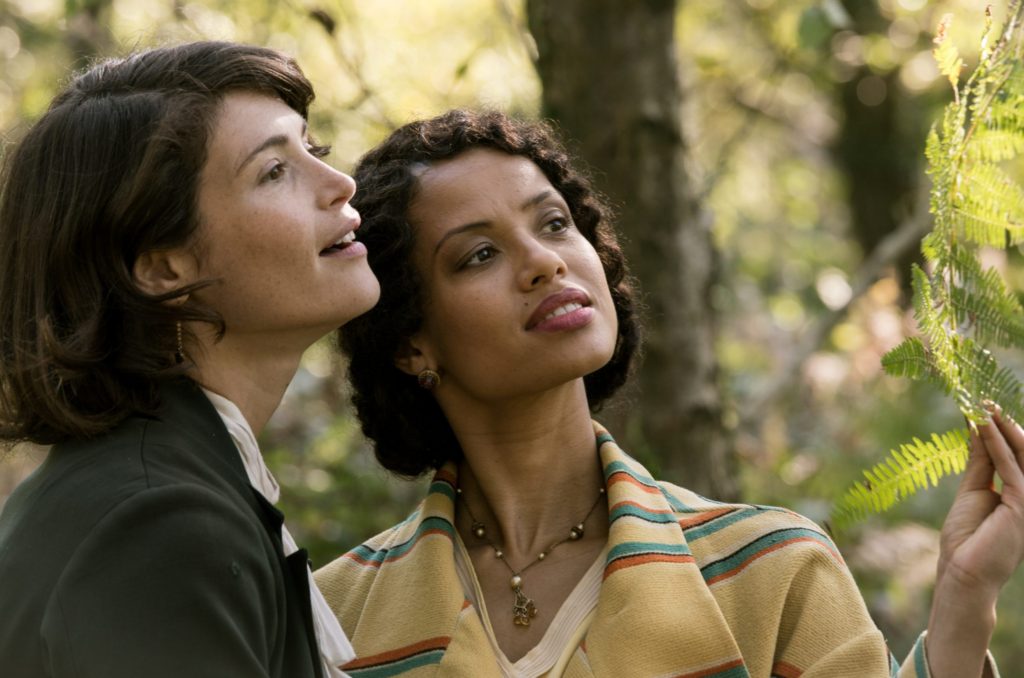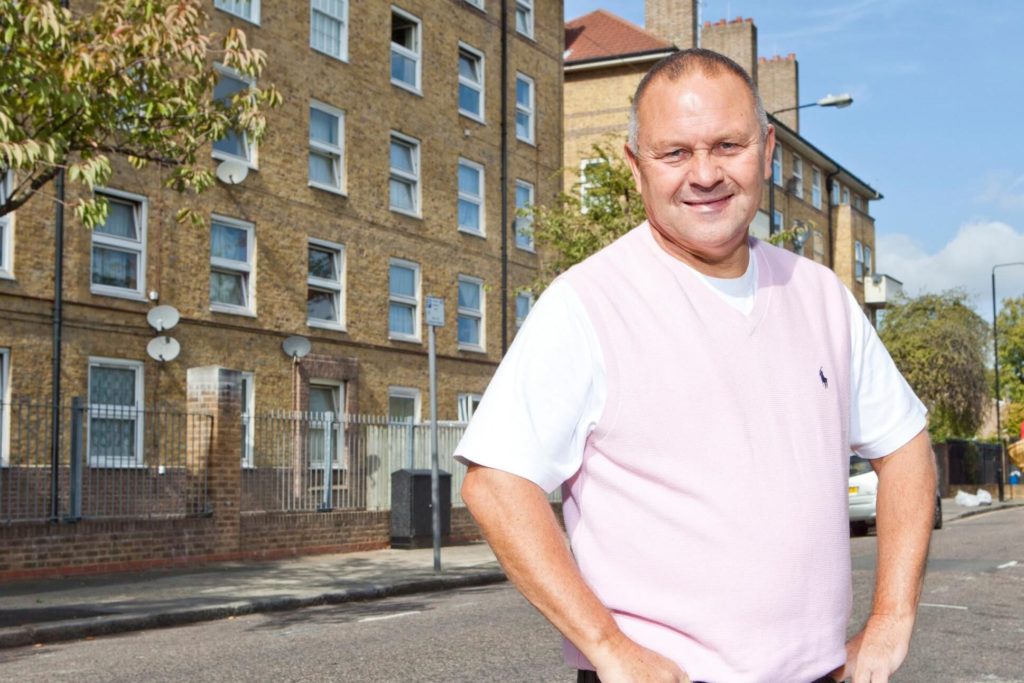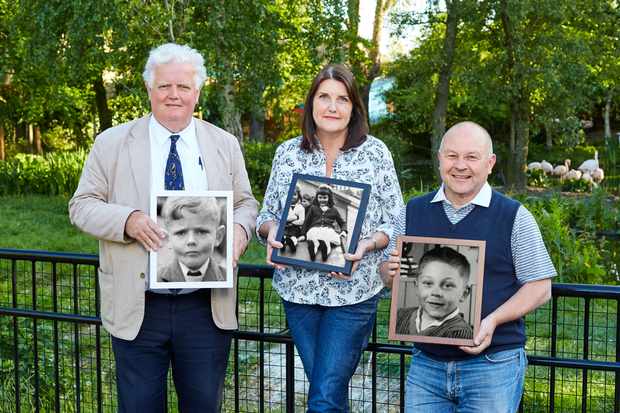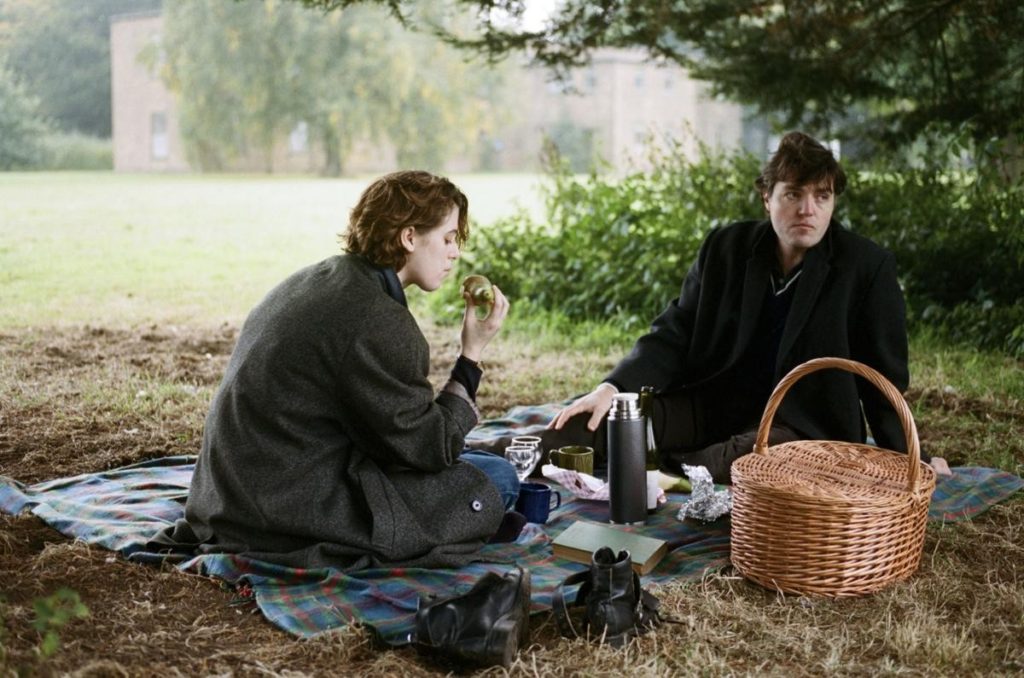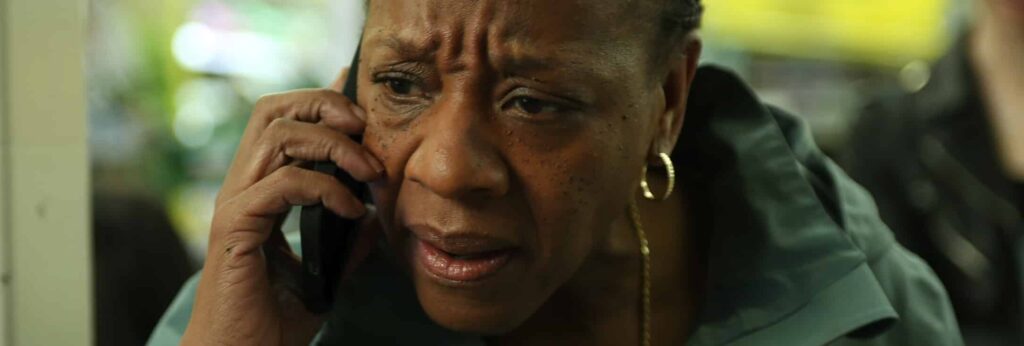
Hard Truths is the searing (but sometimes funny) portrait of a woman who lives without ever experiencing a moment of contentment. Pansy (Marianne Jean-Baptiste) overreacts to every situation, usually with rage, but sometimes with terror. In a state of perpetual grievance, even when she needs to manufacture one, every encounter is toxic.
Pansy is offended even by the ribbon that a neighbor puts on her baby, and by the affrontery of a retail clerk whose job it is to ask her is needs any assistance. Pansy’s husband Curtley (David Webber) and son Moses (Tuwaine Barrett) tiptoe around their own house, bracing for Pansy’s next explosion. The 22-year-okd Moses either slacks in his room or wanders randomly around the city.
In contrast, Pansy’s sister Chantelle (Michelle Austin) enjoys her life and other people; the mood in her more modest apartment is relaxed and playful, and her daughters (Ani Nelson and Sophia Brown) are spirited achievers.
So, why is Pansy so unhappy? Curtley is an inoffensive man with a plumbing company, and he provides well for Pansy. She doesn’t have to work, and the family lives in a leafy neighborhood, in a comfortable house. She says that she is tired and lonely, and claims to have migraine headaches, but we don’t see any of those. I’m not a mental health professional (although I’m married to a licensed therapist), but Pansy is suffering from something more than a sour outlook on life; we see anxiety, depression and paranoia. We learn that she may be damaged from adult burdens prematurely forced on her in childhood by her mother, but she’s going to need some chemicals before she can sit long enough for talk therapy. Unfortunately, she lashes out at family members and doctors who could help, pushing them away. Poor Curtley is mystified and utterly unequipped to see any solution.
Hard Truths is a film by Mike Leigh (Secrets & Lies, Vera Drake, Another Year), who collaborates with hs actors so an usual degree, so Pansy is Leigh and Jean-Baptiste’s joint creation. 28 years ago, Jean-Baptiste played a wholly different character in Leigh’s masterpiece Secrets & Lies, a story in which Brenda Blethyn played the hot mess.
Jean-Baptiste’s singular performance is a tour de force. Everyone in the cast is excellent, and I especially admired David Webber’s for playing a decent man trapped in a hellish situation that he doesn’t understand, with no good choices.
Many of Pansy’s explosions are so absurdly ungrounded as to be funny, but the bottom line is that we’re watching the most unpleasant person imaginable for 97 minutes. Overall, I was saddened by the realization that 1) Pansy can’t help herself and that 2) there is no foreseeable path for relieving her disorder. Still, I’m glad I saw Hard Truths because of Marianne Jean-Baptiste’s sui generis performance.

